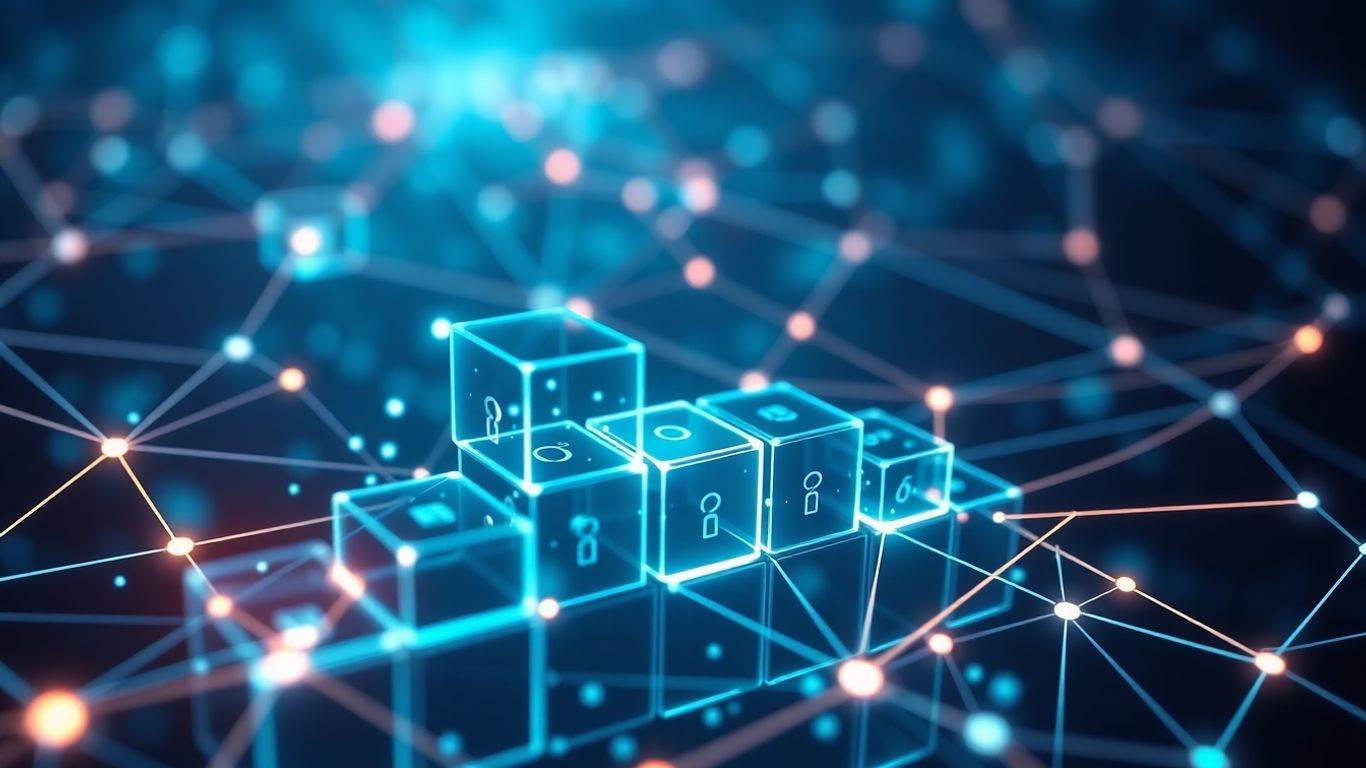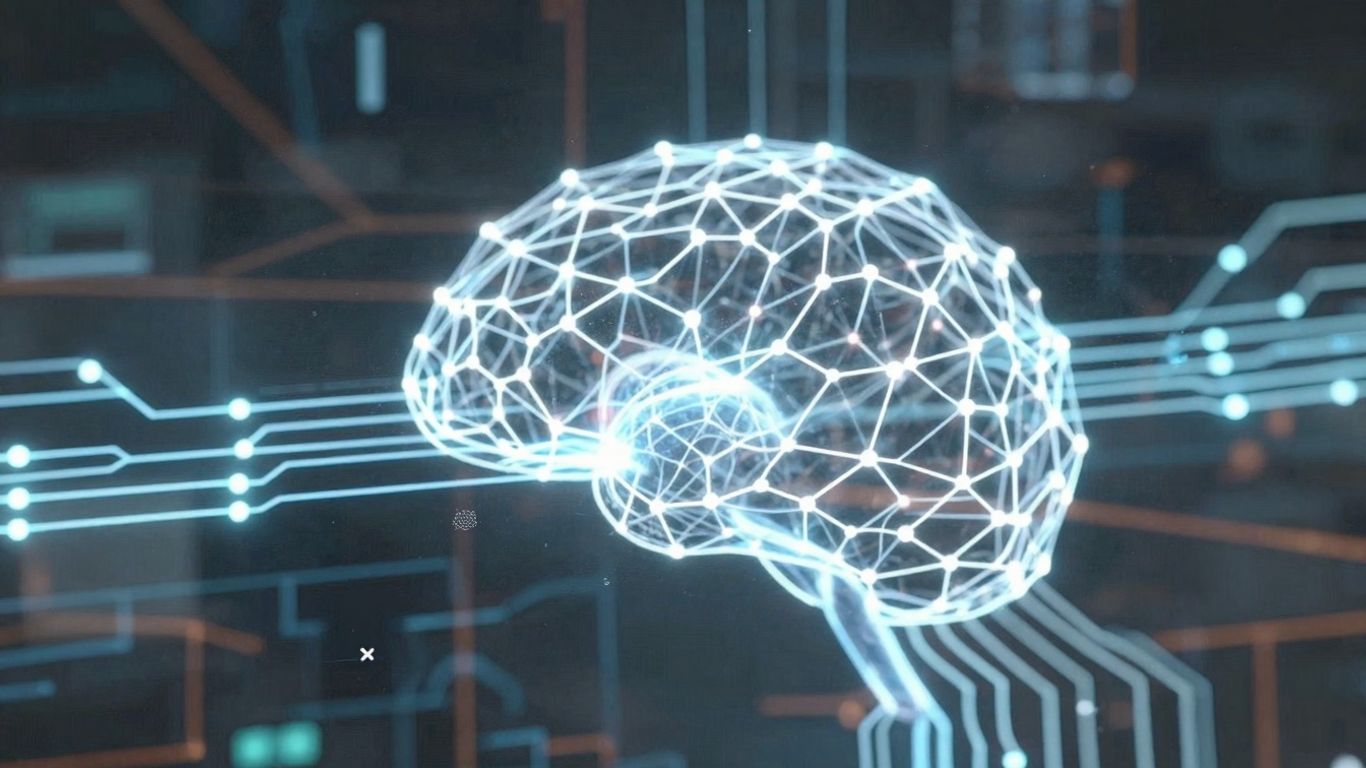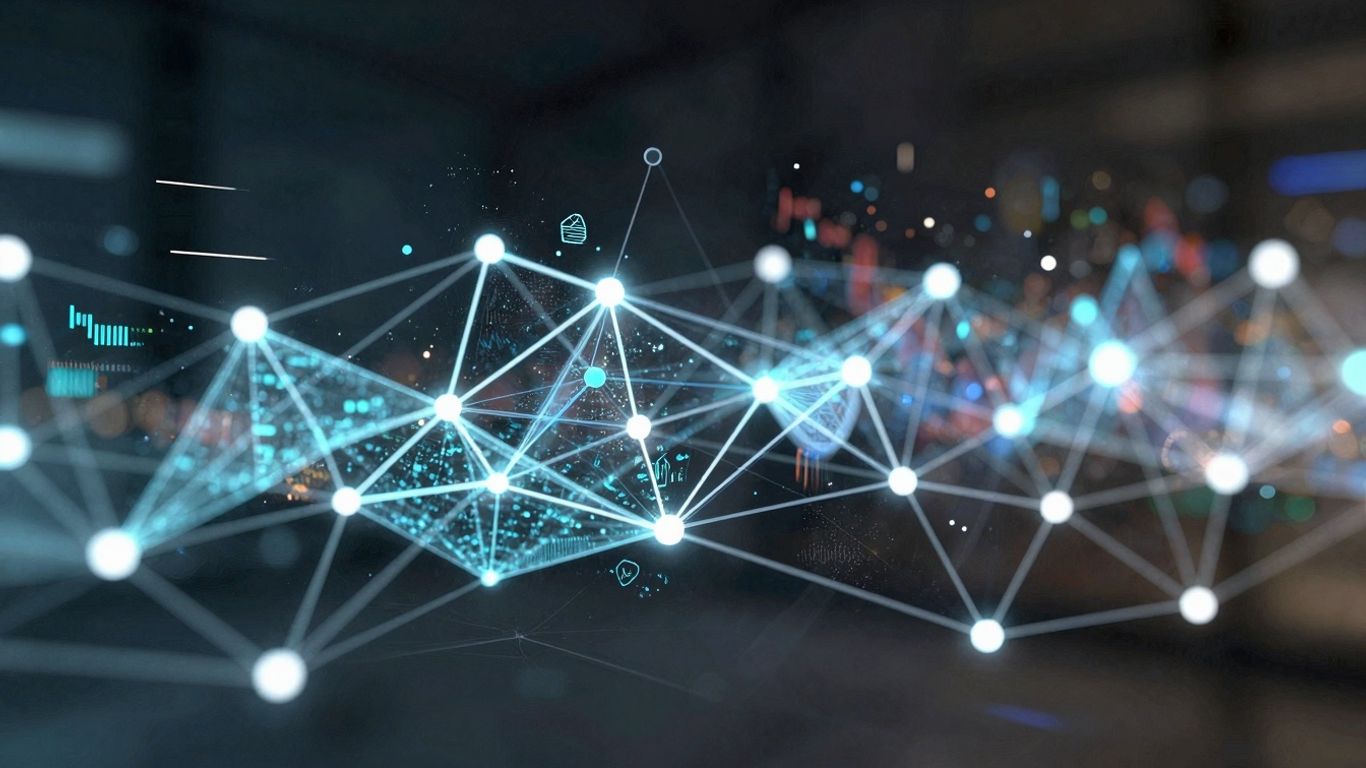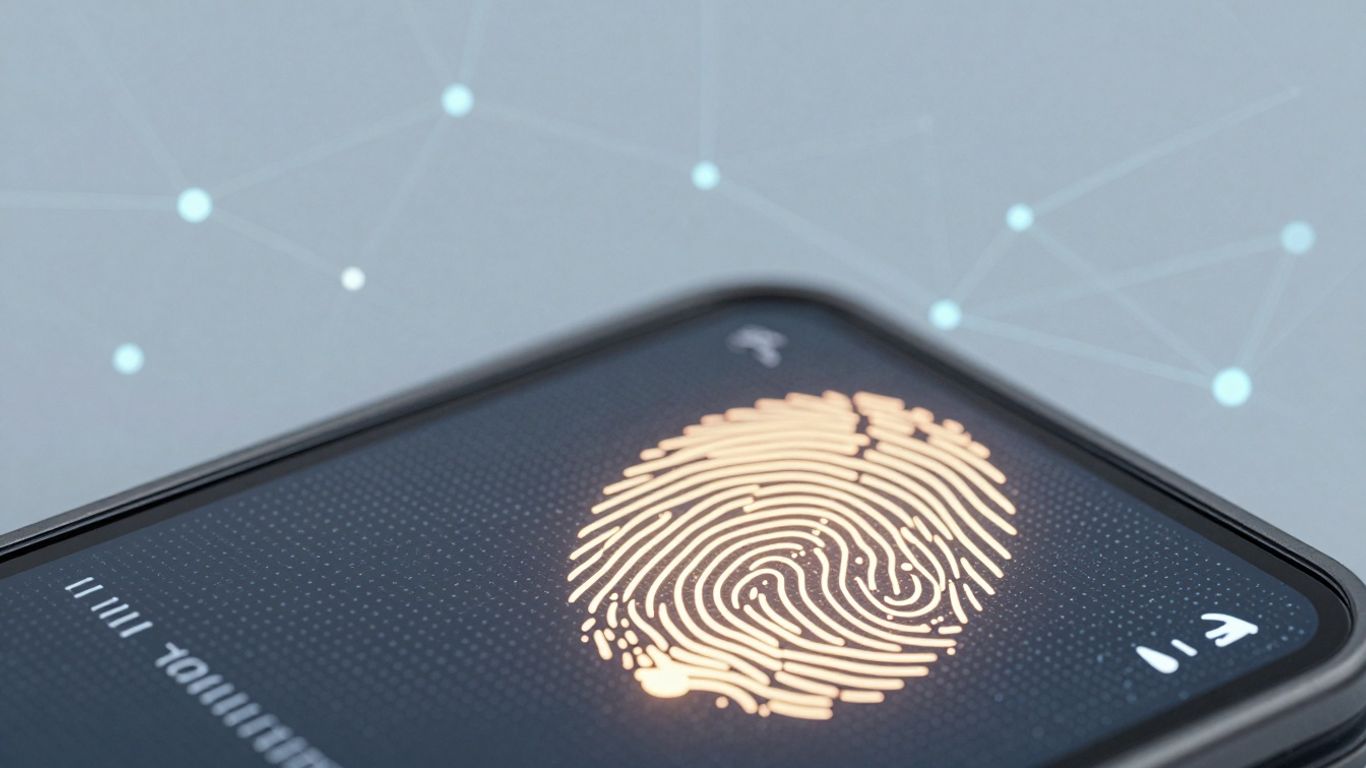[ newsletter ]
Stay ahead of Web3 threats—subscribe to our newsletter for the latest in blockchain security insights and updates.
Thank you! Your submission has been received!
Oops! Something went wrong. Please try again.
Master blockchain auditing with essential strategies. Learn about transparency, AI integration, and future-proofing your audit practices.





The world of auditing is changing, and fast. New tech like blockchain is shaking things up, making old ways of doing things feel a bit… well, old. We need to get smart about how we check the books and make sure everything is on the up and up. This article is all about understanding the big picture of blockchain auditing and what it means for auditors today and tomorrow. Let's figure out how to get ahead of the curve.
So, blockchain. You hear about it with Bitcoin and all that, but it's actually got some pretty big implications for how we audit things these days. Think of it like a super secure, shared digital notebook where every single transaction gets written down. Once it's in there, it's pretty much impossible to change or erase. This is a game-changer for auditors because it means we can trust the records we're looking at a lot more.
This whole immutable ledger thing means you can see exactly where money or data has gone, step-by-step. It’s like having a perfect history book for every transaction. This makes it way easier to follow the money, spot any weird activity, and generally just understand the flow of things. For auditors, this means less time spent chasing down paper trails and more time actually analyzing what’s going on. It’s a big deal for making sure everything is above board.
Because you can't just go back and alter a record on the blockchain without everyone noticing, it’s a really strong defense against fraud. If someone tries to mess with the books, the blockchain itself flags it. This is huge for financial audits, where keeping records straight is the whole point. It means auditors can be more confident that the data they’re reviewing hasn’t been tampered with, which really cuts down on the risk of fraud slipping through the cracks.
When it comes to following rules and regulations, blockchain can make life a lot simpler. All the transactions are recorded in a way that’s easy to check and hard to fake. So, when it’s time to prove you’re compliant with something, you’ve got a clear, unchangeable record right there. Auditors can look at this and quickly verify that everything is in order, saving a ton of time and effort compared to digging through old files and systems. It’s like having a pre-verified report ready to go.
The core idea is that by using blockchain, we get a level of certainty about transaction history that traditional systems just can't match. This shift means auditors can focus more on strategic analysis rather than just verifying the basic accuracy of records.
The world of auditing is changing fast, and if you're an auditor looking at blockchain, you've got to keep up. It's not just about numbers anymore; it's about understanding the tech behind them. You need to be comfortable with data and computers, and that's just the start. Think of it like this: you wouldn't try to fix a car without knowing what a wrench is, right? Auditing blockchain is similar, but your tools are different.
Auditors today need to get friendly with data. This means more than just looking at spreadsheets. You'll be working with big datasets, finding patterns, and spotting things that seem off. Knowing how to use data analysis tools is a must. It helps you dig deeper into transactions and see what's really going on.
The ability to interpret complex data sets and identify anomalies is becoming as important as traditional accounting principles.
Blockchain isn't the only new thing out there. Artificial intelligence (AI) and machine learning (ML) are also changing how audits are done. You can't just learn something once and be done. You have to keep learning.
Being an auditor isn't just about finding mistakes. It's also about helping businesses improve. When you understand blockchain, you can give better advice.
It's pretty wild how Artificial Intelligence (AI) and Machine Learning (ML) are changing the game for auditors, especially when we're talking about blockchain. Think about it: these tools can sift through mountains of data way faster and more accurately than any person could. They're like super-powered assistants, spotting patterns and oddities that might signal trouble, which means we can do more thorough checks, looking at bigger chunks of information and finding things that might have been missed before.
One of the biggest wins here is cutting down on the boring stuff. AI and ML are fantastic at taking over those repetitive jobs, like data entry or matching up records. This frees up auditors to actually focus on the more complex parts of the audit, the bits that need real human brainpower and judgment. It’s not about replacing auditors, but about giving them better tools to do their jobs more effectively.
This is where things get really interesting. ML algorithms can be trained on past transaction data to learn what normal looks like. Then, they can flag anything that seems out of the ordinary, like a transaction that doesn't fit the usual mold. This means we can get ahead of potential problems. Instead of just reacting to issues, we can start predicting where risks might pop up and deal with them before they become big headaches. It’s a much smarter, more proactive way to manage risk.
So, the AI and ML tools spit out a bunch of findings, but what do they actually mean for the audit? That’s where the auditor’s skill comes in. We need to be able to look at what the algorithms are telling us, understand why they’re flagging certain things, and then decide what needs further investigation. It’s about translating the machine’s output into actionable audit insights.
The real trick is not just using these technologies, but knowing how to interpret their results. It’s like having a really smart assistant who speaks a different language – you need to understand what they’re saying to make good decisions.
Here’s a quick look at how these tools can help:
Bringing blockchain into the auditing world isn't just about new tools; it brings up some serious ethical questions and professional hurdles we need to think about. It’s a bit like learning to drive a new kind of car – exciting, but you need to know the rules of the road.
When we talk about blockchain, we're often dealing with a lot of sensitive information. While the technology itself is designed to be secure, how we handle that data before it even gets onto the chain, and how we access it afterward, is a big deal. Auditors need to be super careful about who sees what and make sure everything is protected from unauthorized eyes. It’s not just about the blockchain itself, but the whole process around it. We have to think about things like:
The decentralized nature of blockchain means data is spread out, which can be good for security, but it also means we need to be extra vigilant about how we manage access and protect individual privacy. It’s a delicate balance.
If we're using AI or machine learning tools to help with blockchain audits, we have to ask if those tools are fair. Algorithms can sometimes have hidden biases, which could lead to skewed results or unfair conclusions. Auditors must be able to question and understand how these algorithms arrive at their findings. This means looking under the hood, so to speak, to make sure the technology isn't accidentally creating new problems while trying to solve old ones. We need to be able to explain why a certain transaction was flagged or why a risk was identified, and that explanation needs to hold up. It’s about making sure the technology works for everyone, not just a select few. This is a key part of verifying transactions and data access.
As auditors, our reputation is built on being independent and sticking to our professional standards. When we start using new technologies like blockchain, we need to make sure these core principles aren't compromised. For instance, if the company we're auditing is also the one providing the blockchain auditing tools, that creates a potential conflict of interest. We need to be clear about our role and ensure that our judgment isn't clouded by who is paying us or what technology we're using. It’s about staying objective and making sure our audit opinions are based on facts and sound professional judgment, not on the convenience of the technology. This means continuous training and a commitment to ethical conduct, even as the tools change.

So, what does blockchain actually do for our audit trails? Think of it like this: instead of a paper ledger that someone could smudge or change, blockchain is like a digital record book that's copied and shared across tons of computers. Once something is written down, it's pretty much there forever, and everyone can see it. This makes it way harder for anyone to mess with the records.
This whole immutable record thing is a big deal for keeping data safe and making sure companies are following the rules. Because the records can't be easily altered, it’s a lot easier to track who did what and when. This helps companies stay compliant with regulations, especially when dealing with sensitive information. For example, in healthcare, tracking patient data access becomes much more secure. Auditors can look at this chain of records and feel more confident that the data hasn't been tampered with, which is a huge win for data security.
One of the coolest parts is how blockchain helps verify transactions. Every step, every access, gets logged. This means auditors can trace a transaction from start to finish without a lot of manual checking. It’s like having a super-detailed history book for every financial move or data interaction. This level of detail makes it simpler to spot any odd activity or unauthorized access. It really cuts down on the guesswork involved in traditional audits.
Ultimately, using blockchain for audit trails builds more trust. When stakeholders, whether they're investors, customers, or regulators, know that the records are secure and transparent, it makes them feel better about the organization. It’s not just about preventing fraud; it’s about creating a reliable system that everyone can depend on. This can be particularly important for companies that handle a lot of sensitive information or operate in highly regulated industries. It’s a way to show that you’re serious about data integrity and responsible management.
Here’s a quick look at how it helps:
The shift towards blockchain in auditing isn't just about adopting new tech; it's about fundamentally changing how we ensure the accuracy and trustworthiness of financial and operational data. It moves us towards a system where integrity is built into the very structure of the records themselves, rather than relying solely on post-event checks and balances. This proactive approach to data integrity is what modern auditing needs.

So, the world of auditing is changing, and fast. It's not just about checking numbers anymore. We've got to think about how new tech, like blockchain, fits into the picture. Integrating blockchain isn't just a trend; it's about making sure audit practices stay relevant and effective in the years to come. It's about getting ahead of the curve, not just reacting to it. This means auditors need to be ready for whatever comes next, and blockchain is a big part of that. It's a shift from just looking backward at what happened to also looking forward at how to prevent issues before they even start.
Think about it – technology is moving at lightning speed. What was cutting-edge a few years ago is practically old news now. For auditors, this means we can't just stick to the old ways of doing things. We need to be open to new tools and methods. Blockchain, for instance, can completely change how we track transactions and verify data. Instead of sifting through piles of paper or digital files, we can have a secure, transparent record that's almost impossible to mess with. This isn't just about making our jobs easier; it's about providing a better, more reliable service to our clients and stakeholders. We have to be willing to learn and adapt, or we'll get left behind.
Being agile is key here. It means being flexible and able to pivot when new technologies or regulations pop up. It’s like being a surfer – you have to read the waves and adjust your stance. A global mindset is also important. Auditing isn't just a local thing anymore. With businesses operating all over the world, we need to understand different markets, regulations, and cultural nuances. Blockchain, being a global technology, really highlights this. It connects systems and people across borders, so our auditing approach needs to do the same. We need to be comfortable working with diverse teams and understanding how blockchain impacts operations in different countries.
This is where things get really interesting. It's not just about compliance anymore; it's about adding real value. By using technologies like blockchain, auditors can uncover insights that weren't possible before. Imagine being able to see the entire lifecycle of a product in a supply chain, with every step verified on a blockchain. That kind of transparency can help businesses identify inefficiencies, reduce risks, and even improve their sustainability efforts. It’s about moving from just saying 'yes' or 'no' to a transaction to providing strategic advice based on solid, verifiable data. We can help companies make better decisions by giving them a clearer picture of their operations.
The future of auditing is about proactive engagement and strategic partnership, moving beyond mere verification to become a trusted advisor that helps organizations navigate complexity and seize opportunities through data-driven insights.
So, we've talked a lot about how blockchain is changing the game for auditors. It's not just about keeping up with new tech; it's about really understanding how things like AI, machine learning, and blockchain itself can make audits better, more transparent, and faster. Sure, there are hurdles to jump, like needing new skills and thinking about privacy, but the potential is huge. Auditors today and tomorrow need to be ready to learn, adapt, and use these tools to do their jobs well. It’s about being smart with data, keeping digital systems safe, and always remembering the ethical side of things. By embracing these changes, auditors can really add more value and help businesses succeed in this digital world.
Think of blockchain as a super secure digital notebook that many people share. Every time something happens, like a money transfer, it's written down in this notebook. Once it's written, it can't be erased or changed, and everyone has a copy. This makes it really hard to cheat or mess with records, which is great for auditors who need to make sure everything is honest and accurate.
Auditors need to learn new tricks! They have to understand how computers and data work together, like being good with numbers and technology. They also need to keep learning about new tech as it comes out, like understanding how smart computers (AI) can help them do their jobs better. It's also important for them to understand how businesses work so they can give good advice.
Computers that use AI can do boring, repetitive jobs for auditors really fast, like checking lots of records. They can also look at tons of information to guess where problems might pop up before they happen. This helps auditors focus on the tricky parts and find important clues.
One big challenge is keeping people's private information safe when it's on the blockchain. Also, if a mistake is made on the blockchain, it's super hard to fix because it's designed to be permanent. Auditors also have to make sure the computer programs (algorithms) they use are fair and don't have hidden biases, and they must always stay honest and independent in their work.
Because blockchain records are locked in and shared, they are very safe from being changed or faked. This means auditors can trust the information they see much more. It helps make sure that when someone looks at the records, they know it's the real deal and hasn't been tampered with, which builds confidence in how a company manages its information.
Auditors need to be like chameleons, changing and learning new things all the time. They should be good with technology, understand how to look at lots of data, and be open to new ideas. Thinking globally and being flexible helps them stay ahead and find new ways to help companies do better.


